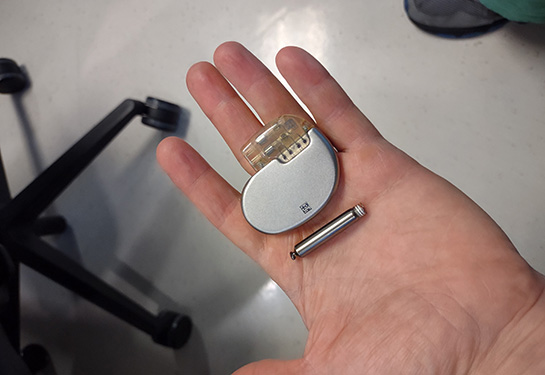Pediatric GI, endocrine patients gain more access to mental health services
Coping with chronic illness can significantly impact a child’s health, increasing rates of depression and anxiety for young people.
“Many gastroenterological (GI) conditions like Crohn’s disease, irritable bowel syndrome, and celiac disease are what I would classify as invisible illnesses, with no outward signs or symptoms of disabilities,” said Daphne Say, pediatric gastroenterologist at UC Davis Children’s Hospital. “As such, these children shoulder unique emotional baggage as others may not be able to understand what they’re experiencing or how to help them. Some people may not believe that they have chronic medical conditions because they don’t look sick.”
Functional gastrointestinal disorders like irritable bowel syndrome have been linked to symptoms of depression and severe anxiety. Chronic GI symptoms can lead to increased pain and can be worsened by stress. Researchers have identified bidirectional communication pathways between the gut and the brain, noting that a person’s mental health or early life trauma can impact their gut health.
Connecting patients to behavioral health services has provided needed support for Say’s patients. The protocol is simple:
- Say and other pediatric GI physicians identify patients who might benefit from behavioral health services.
- A social worker refers the pediatric patient and their family to a mental health specialist from the UC Davis CAARE Center. Visits can be virtual or in-person, depending on the family’s preference.
The service is part of a growing integrated care model at UC Davis Health.

“Being able to access behavioral health services can help optimize our patients’ overall quality of health and help them get back to their lives as soon as they can,” Say said.
Mental health therapist Salina Rodriguez has provided care for Say’s pediatric GI patients for the past two years and sees firsthand how this innovative approach improves patients’ health.
“What is most rewarding for me is seeing patients feel better and really understand how to help themselves and advocate for both their physical and mental health,” Rodriguez said.
‘Your mental health and physical health are one’
UC Davis Health’s unique care model launched in 2020 for pediatric pain patients, who needed mental health support. The care model has grown to include pediatric endocrinology and pediatric GI patients.
The behavioral services offered under this model are funded by the UC Davis Health Department of Pediatrics so patients can receive them, regardless of their health insurance or their ability to pay.
“We recognize that your mental health and physical health are one and we are providing care to help the whole person,” said Caroline Timmer, a mental health therapist who has met with more than a dozen pediatric endocrinology and pain patients.
She gauges each patient’s needs and offers three therapies:
- Dialectical Behavior Therapy (DBT), a talk therapy treatment designed specifically for patients between the ages of 12 and 21, with high-risk behaviors including impulsivity, suicidal behavior and self-injury
- Trauma-Focused Cognitive Behavioral Therapy (TF-CBT) for children ages 3 to 18 who have significant behavioral and emotional difficulties related to traumatic life events including abuse, violence and grief
- Parent-Child Care (PC-CARE), a six-session program for the child and their caregiver to improve child-caregiver relationships for children 1 to 10 years of age
“Many children are struggling with chronic pain or have the challenge of being the only one in the class who has to manage with diabetes,” Timmer said. “My approach is that we are treating their illness in a holistic way, making sure that the patient’s physical and mental needs are addressed.”
Mental health affects diabetes outcomes
UC Davis pediatric endocrinologist Nicole Glaser sees mental health support as key in her clinic, not only for her patients but for the parents of children with chronic illness.
“Children with diabetes and their parents have high frequencies of anxiety and depression due to the constant day-to-day demands of dealing with the disease and worrying about complications,” Glaser said. “Issues related to mental health and family dynamics also have major effects on diabetes outcomes.”
Mental health conditions, including anxiety and depression, affect about 33% to 42% of youth with type 1 diabetes, a rate two to three times higher than youth without type 1 diabetes.
Glaser notes that in the U.S., in spite of access to state-of-the-art diabetes care, most children are not meeting their targets for optimal blood glucose levels. Psychological and behavioral challenges are the main barriers to overcome and this program helps to address these issues, she said.
“Ideally, the whole family should work together to support each other and the child with diabetes. Many families need help developing this type of supportive environment and open communication. Many children and their family members also need help coping with feelings of anxiety. For the families that have been able to work with Susan Timmer, she is providing exactly this type of care and support,” Glaser said. “This care helps to provide the family foundation that is necessary to achieve optimal health outcomes.”




